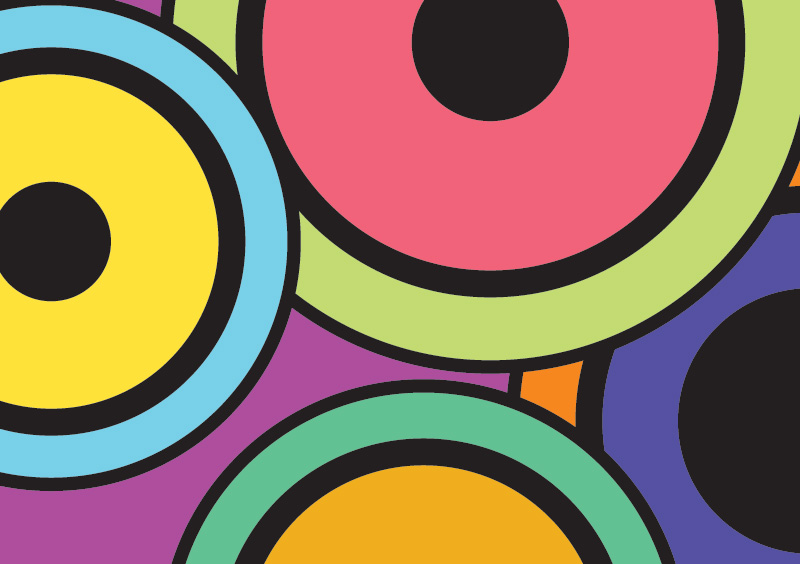
We all understand what a brand is, but most of us do not know how it applies to us as office professionals or as human beings.
What is a brand? Brands are the way we identify companies and organisations – right? It is their color, their logo and often their slogan. Well, yes. But there is a bigger concept at work here.
Your brand is what customers believe and invest in, it is a symbol of what you are, what you stand for, and it encourages their confidence.
What is the difference between these two t-shirts and what is the monetary impact?
This is a powerful visual illustration of why we need to look after our own personal brands. Your brand influences other people’s perceptions of you, it will definitely affect the types of jobs you will be able to get and even the salary you can expect.
In this article I will help you to define your personal brand and give you some tips to market and apply your brand correctly and consistently.
Brands are a big part of any company and are immensely valuable so should be treated as one would treat a physical or financial asset. And this applies to your own personal brand too!
The World’s top 5 most valuable brands:
- Apple worth $183 Billion
- IBM $115 Billion
- Google $107 Billion
- McDonalds $95 Billion
- Microsoft $76 Billion
I am sure each of you could identify these company’s logos. They are an extremely powerful motivator for consumers, who tend to select brands they know or brands that they hold in high esteem. They spend their resources with companies that have brands that they trust or that embody something that they aspire to.
How do I define my own brand?
Your brand consists of the elements that make you unique and successful. It is the combination of traits that makes up ‘YOU’.
To market any product successfully, you need to highlight its special features. This is what we as Executive Secretaries and admin staff need to do. Too many of us have been under-selling what makes us different as the job description implies that we need to blend in with the wallpaper! Well no more. There are too many people competing for a limited amount of positions, so you need to shine! When you leave an interview they need to remember you and they need to know why they should hire you.
Traditional schools of thought have always proposed that we need to develop our weaknesses instead of focusing on our strengths. But think about it this way, working on a weakness may improve it, but it will very seldom make you a success. I encourage each of you to identify your areas of excellence or even your areas of potential. Focus your development efforts towards these areas instead. I believe in developing your problem areas, but it should not be the overwhelming focus.
To give you an example, my brand consists of high reliability, creativity, being able to connect with others, attention to detail and being able to plan. When I sell myself in an interview these are the main items I focus on when I’m asked the inevitable ‘What are your strengths?’ question.
It is empowering to verbalize who you are in words, and I encourage you to take the time to think about them and write them down.
How healthy is my current brand?
They say that your personal brand is what others say about you when you leave the room. Have you ever thought about this? Do you know what others really think?
After all, as PA’s we are actually employed in customer care, we are selling a ‘service’. If you really think about it we actually run our own business called PA Pty Ltd as we subcontract our service to the company that we work for who are actually our customer.
Like any other business, being a successful PA Pty Ltd depends on the following:
- Do people know about my business and my brand? What does my advertising material look like? Does my CV look professional? Is my LinkedIn (or other social media) profile flattering and up to date?
- Do people respect my brand or is it seen as cheap and unreliable?
- Am I a market leader, a premium brand or a subject matter expert?
- What are my competitors doing?
- What is happening in my industry?
- Am I up to date with the latest developments in the field?
- Am I good value for money? Does my employer get what they pay for or am I wasting their time and resources?
- Can I give my consumer (employer) something they cannot find anywhere else? What are my value added services?
Once you have answered these questions honestly, you will get an idea of where your brand currently stands. Are you happy with the results of this small stock-take? If not, it is time to realign your business strategy by getting back to basics.
How to I correctly and consistently use my brand?
Once you know what is special about you and what you want others to perceive you to be, then you need to get real with yourself. You need to start walking the talk; it does not help if you sell yourself as something in an interview just to be found out later to be a fraud. Sounds obvious but many people make this mistake!
Think about this: if you open a can of Coke you know it will taste the same as the last one you bought, the brand doesn’t change and the packaging is uniform and recognizable. You need to become like Coke in your daily dealings, you need to be consistent. You need to be aligned with your own values and you need to be authentic. If you work from a place where you are real about who you are and what you can do, you too start selling a product that people can rely on.
In the words of Jason Hartman: ‘Your personal brand is a promise to your clients… a promise of quality, consistency, competency, and reliability.’













